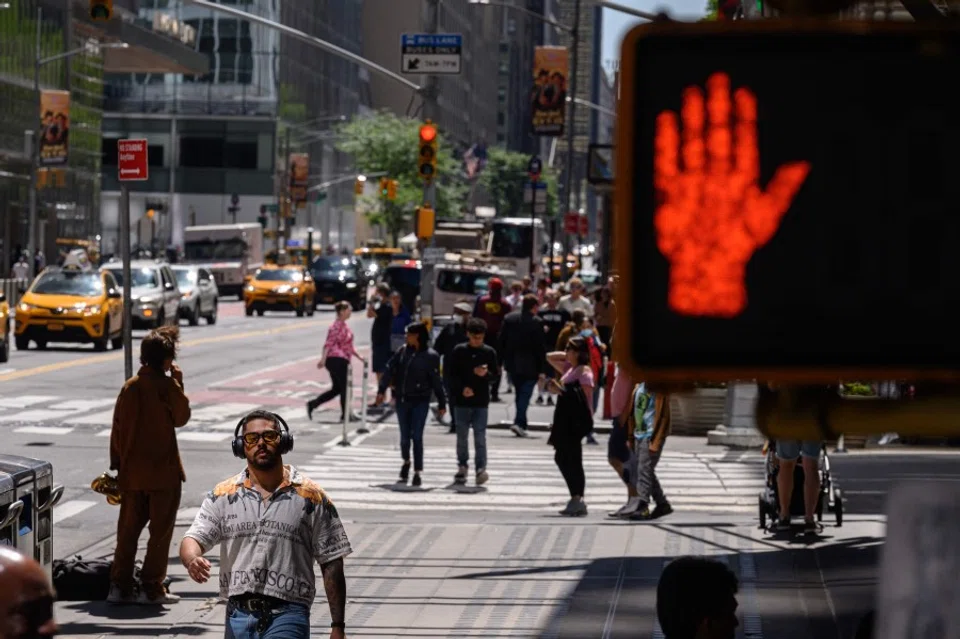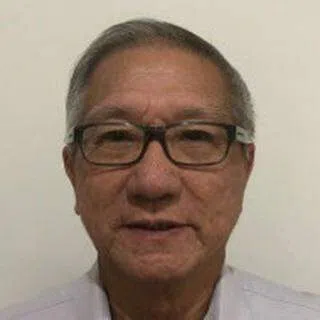Decoupling by another name: The risks of de-risking from China
Former journalist Goh Choon Kang notes that while talk of decoupling has changed to de-risking, the strategic intent behind it, targeting China, has not changed. But just relying on allies is not the best solution, and countries in Asia affected by the tide of de-risking would need to work together to jointly uphold multilateralism and free trade.

There is an old Chinese saying: "Married couples are like birds in the forest; each flies their own way in a crisis." This was pretty much what happened when Covid-19 broke out globally three years ago, as allies and comrades fled for their lives, pushing and trampling on one another, exposing all their hypocrisy.
Initially, US President Donald Trump complacently thought it was China's problem. However, everything changed in early 2020 when the Covid-19 situation in the US spiralled out of control. Amid an extreme shortage of domestic medical supplies, the US no longer cared about appearing strong; it used blatant strong-arm tactics to hijack large quantities of masks in the airports and warehouses of their allies, including Germany and Canada. Naturally, these allies were furious, accusing the US of modern piracy.
Besides hijacking supplies, Trump also announced restrictions on the export of urgently needed medical supplies such as masks, under the Defense Production Act, stopping 3M - a major global manufacturer of N95 masks - from exporting products to Canada and Latin America. Canada had no choice but to turn to China, which had rapidly increased its production capacity for masks and other medical supplies. This shows that, under the common threat of a pandemic, no one in the global village can stand apart - on the contrary, mutual care and support are essential.
The biggest lesson from the pandemic seems to be that excessive reliance on a single market and supply chain is not advisable...

'De-risking' instead of banding together
However, people have short memories; they can also easily be misled by politicians and become ungrateful. Suddenly, we hear of economic decoupling, severing ties, deglobalisation, and "de-risking". What's going on? The pandemic clearly demonstrated that countries around the world are a community with a shared future, so why did the US-led Western world reach a completely opposite conclusion and think of decoupling or "de-risking" from the Chinese economy?
The biggest lesson from the pandemic seems to be that excessive reliance on a single market and supply chain is not advisable - this is not wrong. Unfortunately, political factors have distorted it, as reflected in so-called "friendshoring", proposed by US Treasury Secretary Janet Yellen early last year. The main idea is to prevent other countries from using its market, resources, technology, or products to block the US economy and exercise geopolitical influence, which means the US has to deepen economic integration with countries it considers reliable. This is blatant zero-sum thinking.

The US wants to decouple and sever ties with countries they view as unreliable or competitors, while deepening economic and supply chain connections with so-called like-minded countries. All this is to contain and restrain China; it is no longer about its original intention of promoting diversification. True diversification should be the establishment of closer interdependence among all countries, rather than drawing lines.
According to data from the US Department of Commerce, the trade volume between the US and China in 2022 reached a record-breaking US$691 billion, a 24% increase compared to 2019.
The US is calling on its allies to do the same, attempting to isolate and weaken their competitors in terms of trade and economy, which is essentially a new form of protectionism. However, decoupling is fundamentally unrealistic because the economic and trade relationships between the US, Europe, and China are incredibly close. From the US to Europe and Australia, the volume of their business dealings with China is more than one can imagine; they have no larger source of wealth than business with China. So, while they may talk about decoupling, in reality, it is impossible for them to sever economic ties.
Reality paints a different picture
Ngozi Okonjo-Iweala, the director-general of the World Trade Organization (WTO), wrote in a recent article that so-called deglobalisation is completely contrary to the actual situation. Global commodity trade reached an unprecedented high last year. According to data from the US Department of Commerce, the trade volume between the US and China in 2022 reached a record-breaking US$691 billion, a 24% increase compared to 2019. This means that there hasn't been a significant reshoring of international supply chains, and cost and quality are still the main considerations in where companies choose to establish themselves. Of course, policies can change the situation, but not in a short time.

As for China-Australia trade, according to Chinese statistics, bilateral trade volume declined slightly from US$231.2 billion in 2021 to US$220 billion in 2022. However, bilateral trade has rebounded to about US$58.8 billion in the first quarter of this year, a year-on-year growth of 10.9%.
"Where does de-risking end and decoupling begin? That is not clear. So we have to be careful and practical..." - Josep Borrell, High Representative of the European Union for Foreign Affairs and Security Policy and Vice-President of the European Commission
As for China-EU trade, according to data from the Chinese Ministry of Commerce, trade volume between China and the EU reached US$847.3 billion in 2022, a 2.4% year-on-year increase. Recently, at the Shangri-La Dialogue in Singapore, Josep Borrell, High Representative of the European Union for Foreign Affairs and Security Policy and Vice-President of the European Commission, mentioned decoupling and de-risking. He said: "Decoupling means we are not going to engage economically with China. Every day, our trade with China is around US$2.7 billion. Every day! So, decoupling? Forget about it. If we tried to do that, we would produce a worldwide crisis."
Risky to only rely on allies
However, Borell vigorously defended "de-risking". He said, "De-risking is different, it's about avoiding risk. We have to avoid excessive dependencies. When Covid-19 came, we discovered that in Europe, we don't produce a single gram of paracetamol. All paracetamol was produced in India or China. And in the pandemic, this became a problem. So we have to reduce such excessive dependencies." But he also added, "We have to also be mindful of the border between de-risking and decoupling. Where does de-risking end and decoupling begin? That is not clear. So we have to be careful and practical..."

With the realisation that decoupling is not feasible, the term was changed to "de-risking". However, it is clear to everyone that the strategic intent behind it has not changed; it is about forming alliances and engaging in confrontation. So, besides "friendshoring", there is also "ally shoring", "nearshoring", "onshoring", and so on - in short, so-called de-risking. Although this is not entirely what Europe wants, it cannot resist the pressure from the US and can only strive for a more credible alternative.
But is it absolutely safe to bring all production back to one's own country, or only rely on allies? Definitely not. The powdered milk crisis that occurred in the US last year is evidence of this. Almost all of the infant formula in the US is produced domestically. Last year, Abbott Laboratories, one of the four major powdered milk manufacturers in the US, had to recall its products due to bacterial contamination and shut down one of its factories. This sparked a rare shortage of powdered milk, and the US government had to urgently import powdered milk, even dispatching military aircraft to Europe to address the emergency.
However, it seems difficult to reverse the geopolitical movement of Western countries towards de-risking, and so countries must be fully prepared to deal with the possible risks that come with it. Singapore's Deputy Prime Minister and Finance Minister Lawrence Wong has already noted that the results of de-risking will bring about the same consequences as decoupling, and called on countries that support multilateralism to voice their concerns.
Singapore must join forces with other like-minded countries and leverage the effectiveness of these mechanisms to resist the wave of anti-globalisation and protectionism, and jointly uphold multilateralism and free trade.

Greater self-reliance needed
But given the current situation, merely voicing concerns may not be enough. Asian, African, and Latin American countries must be self-reliant and mobilise to resist this counterflow.
Fortunately, we have the necessary mechanisms for cooperation. For example, in the Asia-Pacific region, there is ASEAN, APEC, the Comprehensive and Progressive Agreement for Trans-Pacific Partnership (CPTPP), the Regional Comprehensive Economic Partnership (RCEP), and so on. Singapore must join forces with other like-minded countries and leverage the effectiveness of these mechanisms to resist the wave of anti-globalisation and protectionism, and jointly uphold multilateralism and free trade.
This article was first published in Lianhe Zaobao as "从脱钩到去风险化".




![[Photos] Fact versus fiction: The portrayal of WWII anti-Japanese martyrs in Taiwan](https://cassette.sphdigital.com.sg/image/thinkchina/3494f8bd481870f7c65b881fd21a3fd733f573f23232376e39c532a2c7593cbc)
